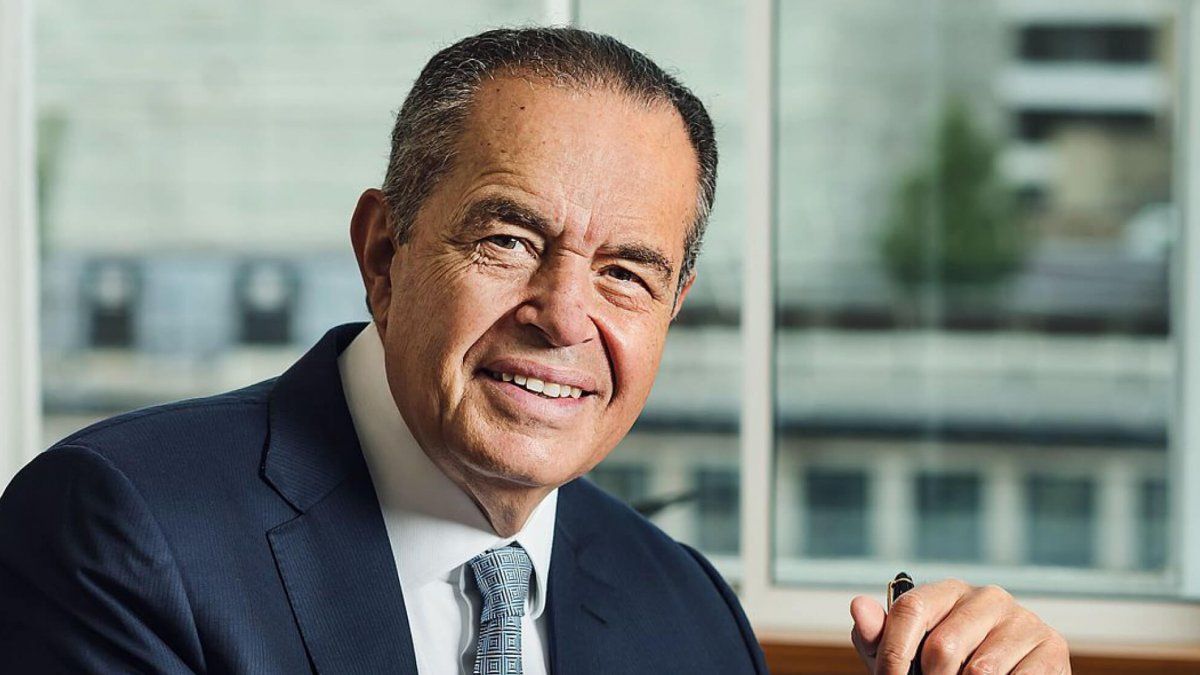Mohamed Mansour He is an Egyptian billionaire who had ups and downs in his financial life. From an aristocratic family, but due to some problems he was left without money, thanks to his financial successes, today he has an empire of US$6,000 million.
Mansour was born into a wealthy aristocratic family that owned the cotton company. But at the age of 18, and while he was studying in the United States, at North Carolina State University, the Egyptian government confiscated his family’s assets.
At the age of 20, just after finishing college, he was diagnosed with kidney cancer. At that time, only a minority of people survived the disease. But a quick removal of the organ and radiotherapy allowed him to recover.
His family managed to restart its cotton export business under a new president, and then started an affiliated automobile dealership, a fledgling company that the 28-year-old ran with his brothers after the death of his father in 1976, and which he later took over in the eighties.
Mansour and his family turned the Cairo-based Mansour Group, which he chairs, into a multibillion-dollar empire, with lucrative contracts with General Motors (it is now one of GM’s largest global distributors) and construction machinery maker Caterpillar. . A good investment in Facebook, before the IPO, earned him a good profit when he bought it at only $18 per share.
Just after moving to the UK, where he still lives, he founded the family venture capital firm Man Capital. Today, Man Capital accounts for almost a third of his $3.3 billion fortune, another quarter is held by his Caterpillar dealer, Mantrac, and the rest is held by Mansour’s personal assets and other businesses, such as Mansour Automotive and ManFoods. His two surviving brothers, Youssef and Yasseen, who run part of the conglomerate, are also billionaires, with $1.3 billion and $1.2 billion each.
In conversation with Forbes magazine, Mansour told some lessons he learned in business, as well as his numerous brushes with adversity.
1. Promise less and deliver more
When Mansour was starting out in car distribution, he was not well known. GM had trusted his late father, but barely knew him, and although the Egyptian private sector was rising under a new regime, foreign importers were wary following Nasser’s nationalization plans. He knew that he couldn’t risk even a small blow to his reputation. “I downplayed it,” Mansour says of his promises to GM in those days. “If I know I’m going to make 100 cars, I’d say 50.” Even now, with his business well established and Egypt’s economic climate unrecognizable, Mansour follows the same mantra.
2. Look for gaps in the market and fill them.
When designing a business, you first have to figure out what is missing in the market. Identify what you can do that others can’t, or learn to do what no one else can. When Mansour was starting out in the mid-1970s, the many years he spent living in the United States made him ideally suited to trade goods between the United States and Egypt. “No one spoke the language or understood the American way of doing business in Egypt except us, the three brothers at the time,” he says. But where other Egyptian entrepreneurs encountered language and cultural barriers, they were able to thrive.
3. Do not sit at the head of the table.
“When I sit in the boardroom, I don’t sit at the head of the table,” Mansour says. In fact, no one sits there: “The head is empty.” This fosters a sense of teamwork, he says, and loyalty among his colleagues. He may be the boss of the company, but he doesn’t consider himself as such, and relies heavily on the insight of those around him. “I’m more of a thinker. I don’t talk much,” Mansour says. “I have very good people around me. People who I know will tell me the truth. And who are probably smarter than me.”
4. Don’t “live in your shadow.”
As a company matures, it’s easy to get stuck in familiar patterns of thinking and ways of doing things, or to become obsessed with what the company used to be and its original goals. That is exactly what Mansour tries to avoid. “I never live in my shadow,” says Mansour. “It’s an expression I use.” Prioritizes innovation and the search for new frontiers. That is what leads you to invest in future projects, such as technology. Overcoming cancer and a disabling injury at a young age could make a person risk-averse: But Mansour says it made him embrace risk and try to never leave an opportunity on the table. That’s why he makes sure to surround himself with young colleagues who are aware of trends and new ideas: “We bring in bright men and women who are younger, they have vision. They can advise us.”
5. You can be friends with your employees, but only outside of work.
When Mansour took over part of the business after his father’s death, he faced a dilemma: “Do I hire experienced people, people older than me? Or friends I know I can trust?” He chose the second option, and for a while it worked wonders. He had an open-door policy in the office, and shared a warm camaraderie with his colleagues during the day and socialized with them at night. But when one day he found them playing soccer in the middle of the office, he realized that he had taken things too far. “I learned from my mistakes. I said, ‘It’s either work or pleasure. We’re friends outside the office.’ And then I started to back away. I closed the door, and that’s how I made the difference.” Setting limits at work eventually became second nature to him.
6. Don’t underestimate macroeconomic factors.
“Macroeconomics is key,” says Mansour. He notes that we are in an election year in the United States, and that companies need to consider “what kind of influence that will have on the American economy, inflation, the Federal Reserve, interest rates.” He made mistakes in the past by not paying enough attention to how politics and major economic changes could affect his business. He did not foresee the weakening of the Egyptian currency starting in the late 70s (throughout his youth he was favored by its strength). The collapse of the pound imported new vehicles and made it increasingly difficult to pay debts. To make matters worse, the Egyptian government temporarily banned many imports, including foreign cars, to deal with the crisis. Mansour was on the verge of bankruptcy.
7. Use adversity to your advantage.
Before his childhood car accident, Mansour’s greatest passion was sports. Confined to a bed, he had to turn up athletics, and faced long stretches of time alone with little to entertain himself. “There was no PlayStation or television back then,” he says. But he helped him develop in other ways: “I sat and thought. I learned to be a thinker.” When his family lost their fortune under Nasser’s program, Mansour “learned the value of money.” It made him more reluctant to go into debt in the future, so that he was better able to salvage his finances when the Egyptian economic crisis hit in the 1980s. “Did it make me a better man? Mansour says of his financial struggles. “Definitely, yes.”
Source: Ambito
I am a 24-year-old writer and journalist who has been working in the news industry for the past two years. I write primarily about market news, so if you’re looking for insights into what’s going on in the stock market or economic indicators, you’ve come to the right place. I also dabble in writing articles on lifestyle trends and pop culture news.




